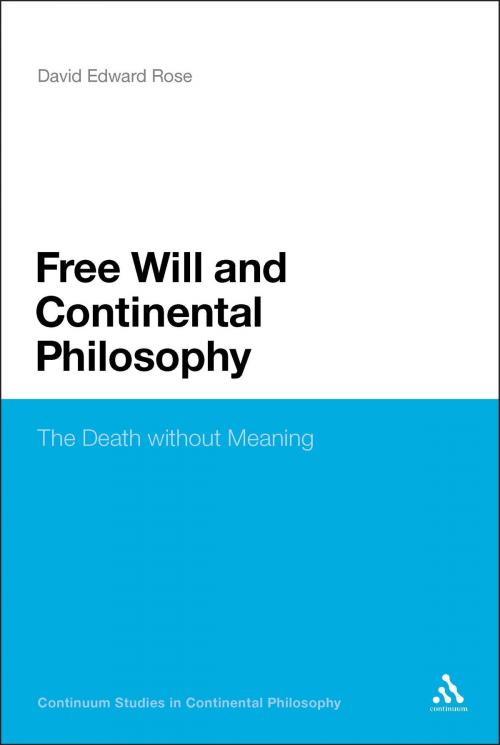Free Will and Continental Philosophy
The Death without Meaning
Nonfiction, Religion & Spirituality, Philosophy, Free Will & Determinism, Ethics & Moral Philosophy| Author: | Dr David Edward Rose | ISBN: | 9781441114013 |
| Publisher: | Bloomsbury Publishing | Publication: | October 20, 2011 |
| Imprint: | Continuum | Language: | English |
| Author: | Dr David Edward Rose |
| ISBN: | 9781441114013 |
| Publisher: | Bloomsbury Publishing |
| Publication: | October 20, 2011 |
| Imprint: | Continuum |
| Language: | English |
Free Will and Continental Philosophy explores the concepts of free-will and self-determination in the Continental philosophical tradition. David Rose examines the ways in which Continental philosophy offers a viable alternative to the hegemonic scientistic approach taken by analytic philosophy. Rose claims that the problem of free-will is only a problem if one makes an unnecessary assumption consistent with scientific rationalism.
In the sphere of human action we assume that, since action is a physical event, it must be reducible to the laws and concepts of science. Hence, the problematic nature of free will raises its head, since the concept of free will is intrinsically contradictory to such a reductionist outlook.
This book suggests that the Continental thinkers offer a compelling alternative by concentrating on the phenomena of human action and self-determination in order to offer the truth of freedom in different terms. Thus Rose offers a revealing investigation into the appropriate concepts and categories of human freedom and action.
Free Will and Continental Philosophy explores the concepts of free-will and self-determination in the Continental philosophical tradition. David Rose examines the ways in which Continental philosophy offers a viable alternative to the hegemonic scientistic approach taken by analytic philosophy. Rose claims that the problem of free-will is only a problem if one makes an unnecessary assumption consistent with scientific rationalism.
In the sphere of human action we assume that, since action is a physical event, it must be reducible to the laws and concepts of science. Hence, the problematic nature of free will raises its head, since the concept of free will is intrinsically contradictory to such a reductionist outlook.
This book suggests that the Continental thinkers offer a compelling alternative by concentrating on the phenomena of human action and self-determination in order to offer the truth of freedom in different terms. Thus Rose offers a revealing investigation into the appropriate concepts and categories of human freedom and action.















